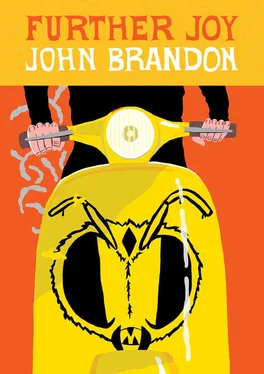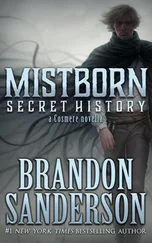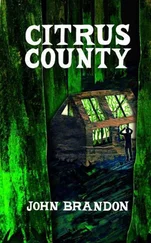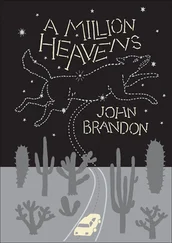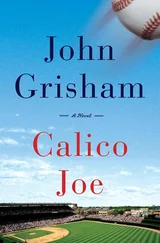John Brandon - Further Joy
Здесь есть возможность читать онлайн «John Brandon - Further Joy» весь текст электронной книги совершенно бесплатно (целиком полную версию без сокращений). В некоторых случаях можно слушать аудио, скачать через торрент в формате fb2 и присутствует краткое содержание. Год выпуска: 2014, Издательство: McSweeney's, Жанр: Современная проза, на английском языке. Описание произведения, (предисловие) а так же отзывы посетителей доступны на портале библиотеки ЛибКат.
- Название:Further Joy
- Автор:
- Издательство:McSweeney's
- Жанр:
- Год:2014
- ISBN:нет данных
- Рейтинг книги:5 / 5. Голосов: 1
-
Избранное:Добавить в избранное
- Отзывы:
-
Ваша оценка:
- 100
- 1
- 2
- 3
- 4
- 5
Further Joy: краткое содержание, описание и аннотация
Предлагаем к чтению аннотацию, описание, краткое содержание или предисловие (зависит от того, что написал сам автор книги «Further Joy»). Если вы не нашли необходимую информацию о книге — напишите в комментариях, мы постараемся отыскать её.
The New York Times
Further Joy — читать онлайн бесплатно полную книгу (весь текст) целиком
Ниже представлен текст книги, разбитый по страницам. Система сохранения места последней прочитанной страницы, позволяет с удобством читать онлайн бесплатно книгу «Further Joy», без необходимости каждый раз заново искать на чём Вы остановились. Поставьте закладку, и сможете в любой момент перейти на страницу, на которой закончили чтение.
Интервал:
Закладка:
“A murder case,” he said. “I reckon if there’s a time to pull out the stops.” Sofia saw her uncle’s shoulders heave and then settle, but couldn’t hear his sigh. A shaft of sunlight was finding its way in at a low angle, spotlighting a swath of the kitchen floor.
“I expect I ought to be tickled,” he said. “You know, professionally. Analyzing crime scenes and supervising interviews instead of, I don’t know, busting some poor guy for buying beer for the trade school kids.”
The man who’d been killed was named Barn Renfro. It was an understatement to say no one in town had been fond of him, but the murder, the first in the city limits in over ten years, had people uneasy. Sofia’s uncle wasn’t one for a witch hunt, but he was going to be as thorough as he knew how. So far he didn’t have much to go on. Sofia didn’t know if he had any real hopes that she could help him, or if he was purely humoring her. If he held strong beliefs about anything — from the supernatural to politics to cornbread recipes — he kept them hidden.
“Who was buying beer for the trade school kids?” Sofia asked.
“Al Terry. This was near a couple weeks ago. Had to charge him, even though I don’t think he did anything wrong. I don’t make up the rules, I just enforce them. If they have beer, to my thinking, they might not wind up on something worse. Maybe that’s misguided.”
Uncle Tunsil cut the water off and Sofia hopped up and grabbed a clean hand towel. She started drying the dishes, leaving her uncle free to gather his wallet and badge and gun and phone. He combed his hair in front of a small mirror on the wall.
“There’s a sheriff in Oklahoma has this woman he uses. I follow her on the computer. She’s part Indian. Her specialty is where . She don’t know what it’s going to be or who put it there, but she’ll say to check the alley behind so-and-so, and sure enough, they’ll find a clue. It’s not an uncommon move anymore. Anyway, having another look at each of them boys in a stressful situation couldn’t hurt.”
Uncle Tunsil had himself together. He shook his head at Sofia, like people did when they thought they’d been sold a bill of goods. “So up at the station say one-fifteen?”
“See you then,” Sofia said.
He slipped his sunglasses on. Sofia followed him to the door like she always did, then waited as he got in the cruiser and bumped from the driveway up onto the straight two-lane road and out of sight. The road was blanketed in shade, but the front steps of the house were already in full morning sun. Sofia stepped out into the humidity.
She was thinking about her mother now, how wary she’d seemed of Sofia when she was young. The drastic looks her mother used to give her. She remembered the doctors, the tests, being handled like something breakable. Her mother had forbid anyone to talk about Sofia having a gift of any sort. Explanation or no, a gift was out of the question. Simple motherly concern was there, Sofia knew — worry over the terrible time Sofia would suffer in grade school, perhaps beyond grade school — but also her mother had been panic-stricken at the thought of scandal. Up north, for many bygone generations, Sofia’s family had been part of the lowest class, poor and of ill repute, immigrants who couldn’t adjust and then simple hustling riffraff. Sofia’s great-grandmother had moved south, about as south as one could move, and started fresh. She’d toiled her family to the fringe of blue-collar, taking any honest work she could find. Her daughter, Sofia’s grandmother, the next in the line, had been a dependable hand and eventually a permanent office employee at a booming citrus concern. Sofia’s mother had attended a trade school, and Sofia a real college. Uncle Tunsil wasn’t sensitive to this striving history like Sofia’s mother had been, but it was women who’d struggled the family upward, not men. Most of the men had taken their leave, thrown their lots elsewhere.
Sofia’s mother must’ve harbored fears that had nothing to do with her recent ancestors, or even with Sofia’s well-being. No one blamed a child when these sorts of rumors made the rounds — it was the mother’s doing, the softheaded mother who wanted to think her child was extraordinary, reading into things. Sofia understood all this. She didn’t blame her mother for a thing. But Sofia was done with college now and she needed to figure out who she was. The rest of her life was sitting in front of her, a shapeless pale hill to clamber up, and she didn’t feel prepared to begin the trek. She’d denied a part of herself for so long, had kept herself convinced of what was real and unreal, but she’d been aware all the while of a nagging doubt. It was all doubt for her now, if she was honest, because she also doubted that there had ever been a wondrous talent in her at all. She doubted that anything had ever been afoot other than coincidence and potent imagination.
She looked up through the leafless half of the nut tree, at the green-tinted sky. A few tattered clouds were strewn about, and an osprey, black at this distance, soaring so high it appeared stuck in one spot. Sofia strolled out into the yard barefoot, to the trunk of the towering tree, tiny twigs snapping under the pads of her feet, the soil still possessed of a slight coolness. She rested her weight against the gnarled bark and looked back toward the house — the steep tin roof, the bed of azaleas blooming under the front windows, the stained-glass water birds her uncle had let her hang from the eaves of the little porch. The sight of the place made her feel cozy and moored.
Sofia had her own reasons to put herself in a room with these men, but she also wanted to help her uncle. She wanted to be of use, wanted for once to be able to repay some of her uncle’s kindness. Sofia had lived with him through half of high school and all of college. Now she’d been done with school for over a year and he still hadn’t made a single mention of her paying rent or even chipping in for bills. He didn’t hassle her about having direction in life. He’d given her no rules, nothing but trust.
On the way to her preschool there’d been a state prison, a clutch of windblown barracks crouched behind lookout towers and razor wire, and each time her mother drove past it, Sofia would go woozy and bewildered in the back seat. Finally she’d lost consciousness one day, and her mother had pulled the car over and shaken her awake. That’s when the tests started, the doctors. All that ceased as soon as her mother realized that every specialist at every clinic was going to keep saying the same thing, that there was nothing physically wrong with her daughter.
Sofia had driven back over to the prison just a few weeks ago, two towns to the east. It had looked smaller of course, still with its burnt, beaten grounds. She’d cruised past it on the soft-curving frontage road, trying not to steel herself, trying not to peer through the fences, and she’d felt nothing more than the hollow heartache anyone feels at the thought of so many men locked up with their guilt.
Sofia remembered the night terrors, but children had night terrors. She remembered the trances, remembered a man in a striped dress shirt and open white coat asking her what her middle name was, her address. And then Sofia’s pen pal. The girl from Kentucky. Sofia had been seven years old, and her mother had found her in the corner of her bedroom, handwritten letters heaped on her lap, sobbing the front of her dress damp for no apparent reason. Another letter was due from the girl by the end of the week. When it didn’t show, Sofia’s mother called the girl’s mother. Sofia’s pen pal had drowned. Shannon Janicek was her name. She had slipped off an icy dock and hit her head on the hull of a boat. She had been at the park with the family of a new friend of hers, a family her mother had never met, and so her mother could not help but hold herself responsible. The regret Sofia had endured, she surmised later, was Shannon’s mother’s. No one had ever found out about that one, about Sofia crying with the letters. It had stayed between Sofia and her mother.
Читать дальшеИнтервал:
Закладка:
Похожие книги на «Further Joy»
Представляем Вашему вниманию похожие книги на «Further Joy» списком для выбора. Мы отобрали схожую по названию и смыслу литературу в надежде предоставить читателям больше вариантов отыскать новые, интересные, ещё непрочитанные произведения.
Обсуждение, отзывы о книге «Further Joy» и просто собственные мнения читателей. Оставьте ваши комментарии, напишите, что Вы думаете о произведении, его смысле или главных героях. Укажите что конкретно понравилось, а что нет, и почему Вы так считаете.
